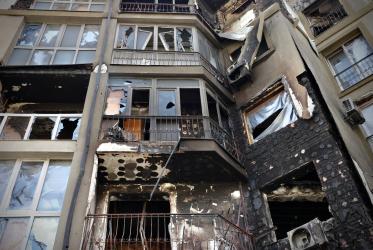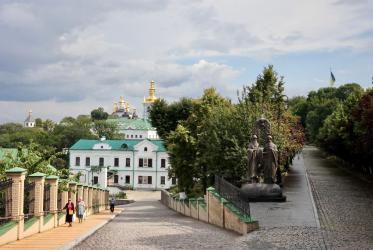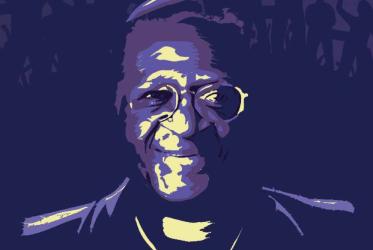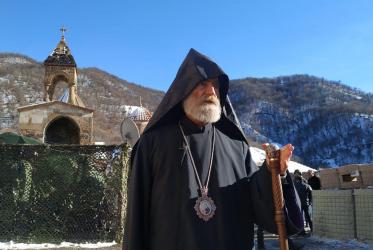Displaying 1 - 20 of 78
"A world free from nuclear weapons is possible"
11 September 2023
Tutu’s legacy: A Zoom panel celebrating “the Arch”
03 February 2022
WCC honoured with Geneva Engage Award
01 February 2022
Dr Abuom reflects on women of faith as healers of creation
05 October 2021
Rethinking Ecological Relationships in the Anthropocene era
11 - 13 February 2021
South Sudan Church leaders welcome new cabinet
15 March 2020














